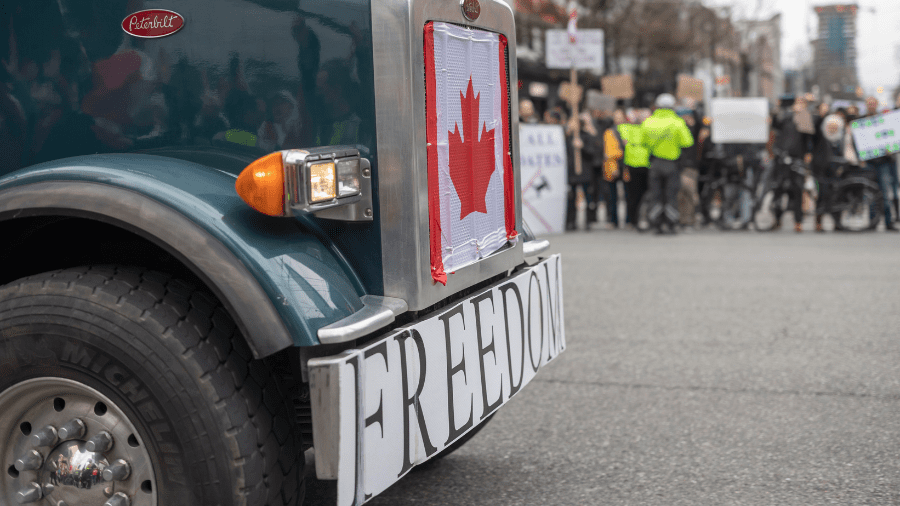This article originally appeared in the Toronto Sun.
By Bruce Pardy, December 8, 2022
Let’s take stock, shall we? In late November, the Rouleau Commission reviewing the use of the Emergencies Act finished hearing testimony from witnesses. What does the evidence show? That the trucker convoy in Ottawa committed no violence and made no threats of violence. As OPP Superintendent Pat Morris put it during his testimony, “the lack of violence was shocking.”
Asking whether the invocation of the Emergencies Act was justified is not a serious question. But no one should expect the Commission to come to that conclusion.
Between 1963 and 1970, the Front de libération du Québec (FLQ) committed hundreds of bombings and several robberies, killing six people, including Quebec deputy premier Pierre Laporte. In response, Pierre Trudeau’s government invoked the War Measures Act. In the following years, this invocation was regarded as a dangerous overreach of government powers and breach of civil liberties.
The Emergencies Act, enacted in 1988 as a replacement, was designed to have higher thresholds and be more difficult to trigger. In February 2022, with the trucker convey embedded in downtown Ottawa, Justin Trudeau’s government invoked it anyway, declaring a “public order” emergency based in part on “the use or threats of serious violence.”
But testimony at the Commission from the Ottawa police, Ontario Provincial Police, Royal Canadian Mounted Police, Canadian Security and Intelligence Service, City of Ottawa, federal government officials, cabinet ministers and the prime minister himself confirms there was no such thing. There was no assault, arson, rape, bombing, or kidnapping. There was no storming of Parliament. There were no attempts to overthrow the government. No intelligence suggested the presence of weapons. When a court issued an injunction to stop their honking, they stopped.
Yet officials spoke of violence all around them. Acting Ottawa police chief Steve Bell testified of the violence experienced by the local community. On cross-examination by convoy lawyer Brendan Miller, Bell agreed that he was not speaking of actual violence but of “the violence that our community felt” from “the culmination of [occupier] actions,” like honking horns. Ottawa city councillor Mathieu Fleury said that protesters committed microaggressions against Ottawa residents, although declined to explain what that meant, and called the parked convoy trucks “weapons.”
Minister of Justice and Attorney General David Lametti said he didn’t feel safe and feared for his staff but described no violent encounters. According to Ottawa resident Zexi Li, living in Ottawa during the convoy was like living in a lawless horror movie, but the only violence described in her evidence was residents in her apartment building throwing eggs at the truckers.
Prime Minister Justin Trudeau testified that invoking the Act was justified to keep people safe. Otherwise, Trudeau said, “how would I explain it to the family of a police officer who was killed, or a grandmother who got run over trying to stop a truck, or if a protestor was killed in a violent clash with someone else?” In this view, “threats of serious violence” meant a situation in which something violent might occur, even if by accident. By that criterion, emergencies arise every day in every province in Canada.
But the Commission is not likely to throw the government under the trucks. Its mandate is not to rule on the legality of the government’s actions but to inquire into “the circumstances that led to the declaration being issued and the measures taken for dealing with the emergency.” The Commission has no power to find liability. Its report will not bind the government. The Commission is ritual, and the purpose of ritual is performance not outcome – to make it appear that there is accountability without having to provide it.
Only in a country with fragile, hysterical leadership could the trucker convoy be regarded as an emergency justifying the infringement of civil liberties. God help us when we have a real emergency – and, no doubt, the next time when we don’t.
Bruce Pardy is executive director of Rights Probe and professor of law at Queen’s University. A longer version was published as an Inside Policy article by the Macdonald-Laurier Institute.






